0 Comments
April 18th, 2013 By Ken Epstein 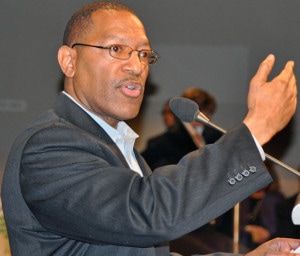 Len Turner Len Turner From the point of view of Turner Group Construction –a local, small African-American owned firm – the company has experienced nothing but headaches since it has tried to work for the City of Oakland. The company has found out first-hand why many small contractors consider the city’s “level playing field “ to be anything but. Most recently, the company demanded a retraction from City Auditor Courtney Ruby’s March Performance Audit that focused on allegations that two City Council members unethically attempted to direct business to the Turner Group. According to the firm’s retraction demand, the report, which mentioned Turner Group 26 times, “implies that Turner engaged in unethical conduct, when in fact Turner was simply reacting, ethically and legally, to the highly unusual decision of city staff to improperly sole source contracts to a politically influential, out-of-town company.” Ruby took only three days to dismiss the complaint. “We decline your request to alter the report,” she said in her April 12 reply. “Please be advised that at no point…(did the report) conclude that Turner Group Construction engaged in unethical conduct. The ethics of Turner’s conduct was outside the scope of the audit.” The twists and turns experienced by Turner Group in Oakland were the opposite of an open and transparent process. First, Turner Group was part of a consortium that was recommended to be part of the Army Base Project. Then the recommended award was withdrawn after contractor Phil Tagami complained, though he was not a party to the bidding process and had not yet received the Exclusive Negotiating Agreement (ENA) on the project. Next, city staff tried to give a sole source, no bid contact to do the Army base work to Top Grade Construction, part of the Tagami team. The size of the award more than doubled. At that point, Top Grade offered Turner Group what it considered a menial “pass through” contract, a small slice of the deal to buy the firm’s silence. Turner Group refused the deal. Councilmembers Desley Brooks and Larry Reid opposed the staff-approved no bid contract, saying it violated the city’s requirements for open bidding. Ultimately on June 19, 2012 the City Council gave the award to the Downrite Corporation, the lowest bidder. The final insult – from Turner Group’s point of view – was to have its reputation maligned by the City Auditor, who did not even seek to interview them in her report. Going back to the beginning, the sun seemed to be shining on Turner Group Construction in August 2009 when the city conducted open bidding to award the Oakland Army Base demolition and remediation (Building 6) project, which was worth at least $2 million but would later go as high as $6 million between two contracts. PARC Services was the lowest bidder. PARC was made up of a consortium of contactors that included Turner Group and other local contractors. “The preliminary staff recommendation is to select PARC Services for the job,” according to an Oct. 9 email written by John Monetta, the city’s real estate manager. Though small, Turner Group is well known and respected for its work in Oakland. The company has a reputation for going out its way to create opportunities for the formerly incarcerated. Turner Group’s successful projects and their contract dollar amount include Alameda County, ($6 million), Oakland Unified School District ($17 million), Kaiser Hospital ($4 million) and San Francisco Boys and Girls Club ($3.5 million). 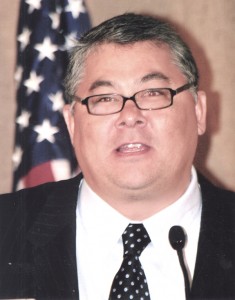 Phil Tagami Phil Tagami But almost immediately, the deal began to go south. Phil Tagami, who was negotiating at that time to become master developer of the Army Base project, told staff to withdraw the offer to PARC Services. “(We) must insist that the bid solicitation be rejected and the process significantly revised with our direct involvement before being re-started,” Tagami wrote in an Oct. 15, 2009 email to Walter Cohen, then director to Oakland’s Community and Economic Development Agency. Tagami wanted the contact to go a company that was part of what he called his team, Top Grade Construction, a large firm based in Livermore. Without a word, city staff withdrew the award recommendation. A year and a half passed with no action on the demolition contact. When the contact reappeared, staff was tying to hand the job to Top Grade, without sending the contact out to public bid. At the same time, the amount of money on the table was increased. The staff in June 2011 wanted to give Top Grade two sole source contracts, one for $1,676,750 and another for $2 million, an open-ended contract that could rise as high as $4 million. At this point, it looked like the award to Top Grade was clear sailing, The obstacles, however, were Councilmembers Desley Brooks and Larry Reid, who were demanding that staff follow the city’s open bidding rules. Apparently certain the company had the contacts in the bag, Top Grade CEO and President Bill Gates in June 2011 sent emails to Turner Group, offering what he called a “mentoring program.” The offer: Turner Group would “manage $362,240” on the project and receive $15,000 to install fencing and straw on the Army Base site and $31,567” in management fees,” according to an email sent by Gates to Len Turner, president of Turner Group on June 16, 2011. The contactors who would do the bulk of the work would be companies picked by To Grade and paid with joint checks provided by Top Grade. Len Turner rejected this offer, viewing it as a “pass through” deal, designed to buy his company’s silence and acceptance of Top Grade’s sole source agreement. Turner did not look at the deal as a legitimate offer to manage a project but as a bit of “handyman work” putting up fence and installing straw. “From our viewpoint, our portion is 10 percent to be a silent partner,” Turner wrote in an Aug. 22, 2011 email. “We don’t interview our subs and/or help negotiate pricing. The subs are being passed over to Turner Group with joint checks being provided by Top Grade.” “Turner group is being handicapped, and this is not the type of partnership Turner Group is looking for Turner Group has a lot to offer, and if this is the final offer, we respectfully decline the offer,” Turner wrote to Gates. Ken Houston, senior vice president of Turner Group, was not impressed with what he considered Gate’s empty words about “future job opportunities at the Oakland Army Base…(for) training local minorities.” This deal was promoted with city staff’s knowledge. According to Gates, copies of his emails to Turner Group were submitted to city staffers. When Gate’s sole source contract failed to be approved by the City Council, staff ultimately conducted an open bidding process, which was won by Downrite Corporation, an Oakland-based firm, a victory for City Council members who had fought for the open process. Few members of the public would have known the story behind this contract if it had not been for the City Auditor’s March 21 report, which dragged the facts of this case into the spotlight. Courtesy of the Oakland Post, April 18, 2013 (www.postnewsgroup.com)
April 18th, 2013 By Ken A. Epstein  Desley Brooks Desley Brooks The City of Oakland’s failure to offer Turner Group Construction an honest shot at winning the Oakland Army Base demolition contact is “only the tip of the iceberg,” and explains, at least in part, the city’s continued dismal record of employing small, local contractors and African American construction workers on its projects, according to Councilmember Desley Brooks. “What does (Turner Group’s experience) say about how Oakland’s flawed process? Here is a company that in seven years has gotten less than $50,000 in contacts with the City of Oakland. They spoke up, but there are a lot of firms that are afraid to speak up because they think they will get penalized,” Brooks said. The obstacles small contractors face can be traced back to the staff and their overly cozy relationship wit the big contactors, she said. “In this instance that staff was going right along with sole sourcing contracts even though they knew it was in violation of the rules. And would have done it were it not for a Turner Group Construction or me and Larry (Reid) asking: Why are you sole sourcing this?’” “Our staff is letting (the big contractors) dictate what is happening on our projects,” Brooks said. Most of the rest of the City Council is “ eager to let them do what they’ve always done. And that’s why the economics are the way that are in the city.” Joe Debro, president of Bay Area Black Builders, agrees that the unfair procedures are connected to city staff and their ties to big contacts. “No matter what the council policy is, the staff does what it wants to do,” Debro said. “This has been going on for the last 30 years or so. The politicians pass what are fair laws, but they don’t have any way to enforce them.” 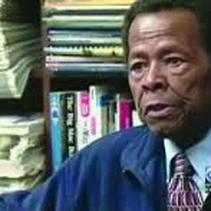 Joe Debro Joe Debro The staff has all the information and controls the process, he said. Frequently, Debro said, “They come in at the last minute (at City Council meetings), needing something passed that night, or they are going to lose the money next week. But they’ve known that for six months. “ Unfortunately, the influence of developer Phil Tagami and other large contactors on the process is the normal operating procedure, she said. “I’ve been saying consistently since I’ve come on the council. We have to make sure the playing field really is level, not just lip service.” There will never be significant hiring of Oakland workers on projects as long as the city relies on big out-of-town contactors. Local hiring cannot be separated from ensuring that contracts go to small, local construction firms, she said. According to Brooks, one way to improve opportunities for small firms would be to create self-insurance, bonding and an owner controlled insurance program (OCIP), all of which would reduce the amount of capital that companies must take out of circulation for long periods of time to guarantee their job performance. An important reform was putting all the Army Base project hires and where they live on the web, a policy that Brooks advocated. Another significant reform has been the city’s prompt payment policy. “If the city actually implemented that policy, which I wrote, small contractors wouldn’t have to carry the city while they wait to get paid,” said Brooks. In examining the city’s record of offering contracts to small companies, it is important “to follow the dollars,” not just the numbers of companies, according to Brooks. In one $14 million deal, the developer hired contractors for $10 million, and a “good percentage went to African American contractors,” she said. ”But it was only for a total of $160,000 out of $10 million worth of contracts. “It’s not just the percentages of participation – let’s look at the distribution of the dollars and wealth.” Courtesy of Oakland Post, April 18, 2013 (www.postnewsgroup.com) Job Classification(s) in the City of Oakland and Dollar amounts for Temporary Personnel Services4/21/2017 From: "Gene Hazzard" <[email protected]> Date: Apr 20, 2017 4:40 PM Subject: Job Classification(s) in the City of Oakland and Dollar amounts for Temporary Personnel Services To: "Brenda Roberts" <[email protected]> Ms. Roberts:
The current proposed temporary personnel services contract to be increased from $150,000.00 dollars to $1,000,000.00 (one million) is not warranted. The City has approximately 1800 job titles and approximately 9,000 sub-categories and job classification. This proposed temporary personnel contract ONLY references in a very limited manner the following Job Classifications: Office Assistant II Administrative Assistant II Public Service Representative Human Resource Technician Budget & Operations Analyst III Data Administrator Paralegal Nurse Case Manager Over the last 25 years the City has paid only $2,500.000.00 (two and half million dollars) for temporary personnel services. This proposed increase in this contract is fiscally irresponsible. In addition, if approved, the City has failed to identify how the ROTATION is to be implemented when a call is made for temporary personnel services.. Finally, TeamPersona should be removed from this contract due to the termination of a $17,700,000.00 contract with the County of Alameda for temporary personnel service because of her unethical representation which is tantamount to FRAUD. I have provided you a copy of the March 3, 2017 termination letter from Human Resource Service of Alameda County: RECOMMENDATIONS A. "Approve and authorize the Purchasing Agent to terminate the contract for Master Contract No. 901040, Procurement Contract No. 10056, TeamPersona, Inc. (Principal: Ginny Velasquez, Location: Oakland), to provide supplemental temporary and payrolling services ..." DISCUSSIONS/SUMMARY: "On November 5, 2013 , your Board approved a three-year contract with Team Personal to provide supplemental temporary staffing and payrolling services. On June 30, 2015 your Board approved an increase in the contract amount from $7,500,000 to $17,700,000.00..." THURSDAY, APRIL 20, 2017 By Darwin BondGraham 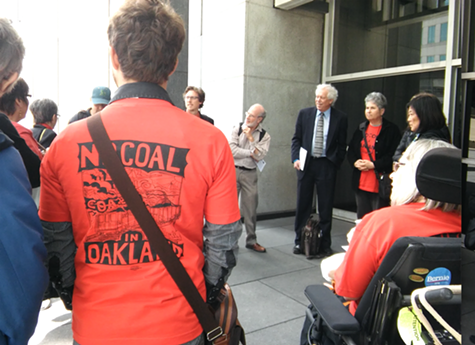 Coal opponents gathered outside of the federal courthouse in San Francisco this morning. Coal opponents gathered outside of the federal courthouse in San Francisco this morning. A federal judge ruled today that a lawsuit brought by the developer of a proposed coal export terminal can proceed against the City of Oakland. The court rejected the city’s motion to have the lawsuit dismissed. The dispute involves a proposed marine terminal to be built in West Oakland. In 2015, it was revealed that the project's developer, the Oakland Bulk and Oversized Terminal, or OBOT, was planning to ship millions of tons of coal annually through the facility. In response, the Oakland City Council passed an ordinance banning the storage and handling of coal on the grounds that it would endanger the health and safety of Oakland residents and workers. Today's court ruling means the lawsuit will go to trial early next year, unless the city and developer settle. The city and OBOT have been in mediation since April 17. A settlement could cost Oakland taxpayers millions. OBOT filed its lawsuit against Oakland on December 7 of last year, contending the coal ban doesn’t apply to its project, because the company already "vested" rights to build the coal export hub in 2013. Back then, Oakland didn't have a law banning coal storage and handling. OBOT contends that it's the city's rules and regulations in effect in 2013 that apply to it, not the subsequent coal ban. "It may be Oakland has an uphill battle in this case," said U.S. District Judge Vince Chhabria at today's hearing. During today's hearing, Chhabria extensively questioned Oakland's attorney, Kevin Siegel, about why the city thinks the lawsuit should be dismissed. Siegel argued that OBOT never actually vested rights to specifically handle coal at the terminal. According to Siegel, any ability for OBOT to handle coal needed to be "expressly" stated in the 2013 development agreement, but it wasn't. "It allows us to impose new regulations where there’s silence in the development agreement," said Siegel. But Chhabria peppered Siegel with skeptical questions about contract law. "I disagree with you in terms of vested rights," the judge told Siegel. "The development agreement gives OBOT vested rights to develop a terminal and use that under Oakland’s regulations that existed at the time the development agreement was signed." Chhabria didn't rule entirely in favor of OBOT today, however. The judge said he is willing to allow two environmental organizations, the Sierra Club and San Francisco Baykeeper, to intervene in the lawsuit. OBOT's attorneys have sought to exclude the groups from participating in the case. Attorneys for the Sierra Club and San Francisco Baykeeper argued that the City of Oakland won't necessarily defend the full set of environmental interests that their members are concerned about, therefore the judge should let them into the case. "The city has to balance environmental interests with the financial pressure from OBOT," said Colin O’Brien, an attorney with Earthjustice, who is representing the groups. He asked whether the City of Oakland would vigorously defend environmental goals if faced with a potentially expensive or damaging outcome that could be avoided through a settlement. "The answer is 'no,'" O'Brien told the judge. "They should not be in this case," countered Meredith Shaw, an attorney for OBOT. "The only impact is additional delay, and OBOT would be forced to fight this battle on three fronts instead of one." Chhabria dismissed Shaw's argument with a joke: "So the concern is OBOT and the little law firm it hired will get crushed by the city and Sierra Club and SF Baykeeper?" The courtroom audience laughed; OBOT is represented by attorneys from Quinn Emanuel, one of the largest business law firms in the world. Chhabria said he'd need more time to think about the proposed intervention by the two environmental groups, but he appeared to be leaning strongly in favor of allowing them to participate. The judge also rejected a proposal from Oakland to schedule a trial in September 2018. OBOT's attorneys argued that delays will harm OBOT financially. Trial is set for January 16 of next year. Attorneys on all sides declined to comment for this report. Phil Tagami, the owner and manager of OBOT, who was present for today's hearing, told the Express "no comment" as he exited the courtroom. http://www.eastbayexpress.com/SevenDays/archives/2017/04/20/federal-judge-rules-against-oakland-allows-coal-terminal-lawsuit-to-proceed The West Oakland Environmental Indicators Project has filed a complaint under the Civil Rights Act of 1964 describing a pattern of conduct by the City and Port of Oakland that inflicts unjustified and unequal impacts on the historically black community of West Oakland. For decades, the City and Port of Oakland have issued approvals to expand polluting freight activities in West Oakland while ignoring input from the community, betraying a deep disregard for the health of local families. That pattern continues to this day, causing West Oakland residents to suffer from diesel emissions that are up to 90 times higher than California’s average.
Filthy diesel-powered freight is harmful for the lungs and hearts of West Oakland residents, especially for children and seniors. Gasping asthma attacks send West Oakland residents to the emergency room at almost twice the Alameda County rate. Children are especially vulnerable to asthma, and living with terrible air quality can stunt their lung development. The pollution in West Oakland’s air cuts into not only quality of life, but also length of life. Air pollution also contributes to higher rates of heart failure and strokes in West Oakland by causing blood clotting and cell damage. According to the Alameda County Department of Public Health, residents in West Oakland can expect to live 9 years fewer than residents of other parts of Oakland. As recipients of federal funds, the City and Port of Oakland have an obligation under Title VI of the Civil Rights Act to avoid causing an unjustified unequal impact on the basis of race, and to consider the risk of unequal impacts before approving a project. If the Department of Transportation and the U.S. Environmental Protection Agency accept the complaint, they will initiate an investigation into the actions from the City and Port of Oakland affecting the community in West Oakland. Since the closure of the Oakland Army Base in the late 1990s, the City of Oakland has been disingenuous about its plans to expand the polluting freight industry, and while it has had the opportunity to use measures to relieve the terrible impacts on West Oakland’s air the City has consistently refused to do so. However, zero emissions electric vehicles and equipment to relieve community health problems are available and in use at other ports and freight hubs in California and the nation. Instead, the City has manipulated its approval processes to circumvent or disregard the disproportionate and toxic burdens West Oakland faces as a result of the Port’s extensive freight operations. In October 2016, the City of Oakland gave approval for developer Prologis to break ground on a massive warehouse at the Oakland Army Base without an air quality plan to lessen health harms for the community. That project is expected to bring a flood of new trucks rumbling through the area, with plans including 250,000 square feet for cargo, 55 trucks docks, and 78 truck trailer parking stalls. West Oakland has a rich culture and history as a black community, and has been a hallmark of Oakland’s historical narrative. As Oakland experiences dramatic changes in the demographic composition of many of its long-standing residents, the community of West Oakland remains a community of color. Roughly 49 percent of West Oakland residents today are Black, 17 percent are Latino, and nearly 13 percent identify as Asian. Read the complaint. http://earthjustice.org/news/press/2017/community-group-alleges-civil-rights-violations-by-the-city-and-port-of-oakland-in-complaint-to-federal
Allegedly over 100 others plus some squatters in the building were desperately displaced from their transitional housing, that reportedly involved three nonprofit organizations!
Four people died at Oakland housing deathtrap run by nonprofit organizations Administrator of nonprofit fire deathtrap failed to file 990 tax filing since 2010 By Lynda Carson - March 28, 2017 Oakland - According to the Alameda County Sheriffs Department the latest housing deathtrap in Oakland with numerous code violations, four people died in the blazing inferno including Edwarn Anderson and Cassandra Robertson. Allegedly over 100 others plus some squatters in the building were desperately displaced from their transitional housing, that reportedly involved three nonprofit organizations, including Urojas Community Services, House of Change, and Dignity Housing West. Urojas Community Services and Dignity Housing West provided housing for the low-income renters residing in slum like conditions, including the disabled and mentally ill. According to The Red Cross it was home for 60 to 80 people in conflicting reports, and according to the East Bay Express the renters being housed by Urojas Community Services were facing eviction. The building (deathtrap) is owned by slumlord Keith Kim, who resides in a spacious Piedmont home valued at more than $3,800,000. Reportedly, Urojas Community Services has also been in the news recently in Stockton due to problems at one of it’s transitional housing facilities. ”It's atrocious the way they keep these grounds," said Nina Lamfers, who recently moved out of the complex. "If I would have known the way it was going to be, I would have thought twice or maybe made a different decision." It was reported that; “Lamfers and two other residents have publicly raised allegations of negligence by UROJAS leadership, including staff threatening to kick them out. They describe rooms in need of maintenance and infested with bedbugs and cockroaches, and piles of trash throughout the compound.” “The room Lamfers, who showed The Record a series of photos, rented had bed bugs on walls, light sockets, behind decals and frames, she said.” "She was so badly bitten by bed bugs that when we went to her last prenatal appointment the doctors say you have got to move," said Susan Gibson, the grandmother of Lamfers' unborn baby.” “Jasper Lowery, executive director of UROJAS, on Friday said any issues residents bring to staff are immediately addressed, including dealing with pests, but a lack of funding has affected operations.” “On Friday, Lowery gave a tour of the facility to representatives from a local nonprofit agency. Prior to the visit, men could be seen pressure washing, raking and tossing trash.” Additionally, it was reported: In Stockton, UROJAS Community Services opened it’s transitional operation in May 2015, and the transitional housing facility was cleared to open for 70 beds and can house 25 children. Reportedly, “During an interview and tour of the facility with The Record in December, Lowery, who moved to Stockton from Alameda County, said he started the program to assist women who are military veterans and single women with children in need of emergency, transitional and permanent housing. UROJAS' "Believe Center," which is adjacent to the facility, is intended to provide training and classes for the clients.” “Lamfers, who paid $600 a month and then $700 a month to live there, said people don't get what they're promised when they sign the agreement.” “According to the contract, services include independent living at an affordable rate, clean and sober living, neighborhood activities, three meals a day "but not mandatory nor an agreed requirement," fresh linens weekly and "included in your rent: P.G.E. Water..." "You don't get any of this," Lamfers said. "You're lucky if you get dinner." “Lamfers said residents were also told during a meeting that Pacific Gas & Electric Co. and water would be shut off from 11 a.m. to 5 p.m. and they had to go elsewhere, yet it is supposed to be included with their rent.” “Lowery said clients were asked not to use utilities during the day to save money because the bill kept going up.” Public Records Reveal That 2010 Was The Last Time Urojas Community Services Filed A 990 Tax Filing In addition to the alleged problems reported in Stockton, the massive fire in Oakland displaced 100 others plus some squatters from their transitional housing, that reportedly involved three nonprofit organizations, including Urojas Community Services, House of Change, and Dignity Housing West. The latest 990 tax filing by Dignity Housing West reveals that they have operating legally and have a fund balance of over $400,000, and that the status of their corporate license with the Secretary of State is active. However, records reveal that House of Change a drug and alcohol rehab program, has allowed the status of their license with the Secretary of State to become suspended, and that there is no record for House of Change being listed as a nonprofit organization. As for Urojas Community Services, according to public records, the last time Urojas Community Services, employee identification number 26-2211142, filed a 990 tax filing it was for 2010. Public records reveal that by the end of 2010, Urojas Community Services, a 501 c3 nonprofit charity organization, run by Jasper Lowery, had a fund balance of only $100. Records also reveal that by the end of 2009, Urojas Community Services had a fund balance of $100, and they had no assets or a zero fund balance for the organization by the end of 2008. Reportedly, nonprofit organizations that fail to file their 990 tax filings in a timely manner may be charged steep fines or penalties for violating the law. According to Urojas Community Services, Dr. Jasper Lowery, Founder and Executive Director of the organization, is a certified administrator for the State of California to operate Licensed Care Facilities, and public records reveal that his license is active till 11/23/2018. Records also reveal that Urojas Ministries run by Pastor Jasper Lowery, has a suspended license. Lynda Carson may be reached at tenantsrule [at] yahoo.com https://www.indybay.org/newsitems/2017/03/28/18797790.php Public records reveal that Keith Kim made a $700 campaign contribution to Noel Gallo, who voted on the shady land deal last Tuesday to further enrich slumlord Keith Kim!
Corrupt Oakland City Council rewards slumlord Keith Kim after four died in fire Oakland City Council votes on land deal to further enrich slumlord Keith Kim By Lynda Carson — March 30, 2017 Oakland - While nearly three dozen people are still in a shelter today, seeking a new place to live after being burned out of their housing, on Tuesday March 28, one day after 4 people died and around 100 others were displaced by a massive fire in a building owned by Keith Kim at 2551 San Pablo, Oakland’s corrupt City Council voted on some legislation that rewarded slumlord Keith Kim in a land deal, according to a story reported on by the East Bay Express. Three nonprofit organizations managed the building where four people died last Monday, and around 100 people resided there in dangerous slum like conditions until the building caught fire. Urojas Community Services, House of Change, and Dignity Housing West were involved. Urojas Community Services and Dignity Housing West provided housing for the low-income renters residing in slum like conditions, including the disabled and mentally ill. The City of Oakland knew there were many code violations at the building, and that people were living in slum-like conditions because the slumlord Keith Kim failed to maintain the building properly. The building (deathtrap) where four people died is owned by slumlord Keith Kim, who resides in a spacious Piedmont home valued at more than $3,800,000. Meanwhile, reportedly over three dozen fire victims are still reportedly in a shelter looking for a place to live. Oakland City Council Votes On Shady Land Deal To Further Enrich Slumlord Keith Kim According to the East Bay Express, in what appears to be a shady deal, the city went out of it’s way to spend $4.2 million in the effort to acquire 2.8 acres of state-owned land in Oakland, owned by the California Department of Transportation, that would be sold for the same price to West Oakland Development Group LLC, a company invested in by slumlord Keith Kim. Public records reveal that Keith Kim made a $700 campaign contribution to Noel Gallo, who voted on the shady land deal last Tuesday to further enrich slumlord Keith Kim. Reportedly, “Since 2015, the West Oakland Development Group has brought other developers, including Tim Lewis Partners and, later, Panoramic Interests, to negotiate a final deal with the city. According to records, West Oakland Development Group lacked the experience to actually develop the site, and all along had been working as a middleman.” Additionally, according to the East Bay Express, “Keith Kim is an investor in the West Oakland Development Group through another company, called DCSI, according to city records, court documents, and interviews. The percent or dollar amount Kim owns in West Oakland Development Group is unclear, however, as DCSI is incorporated in Delaware and its records are private. But in public hearings, city staff called Kim a “partner” in the West Oakland Development Group, and records describe DCSI as a key source of funding. County records show that both Keith and Hahn Kim have represented themselves as the president of DCSI in real estate deals in the past.” Additional records reveal that Hahn Kim is associated with DCSI Holdings Inc, Orinda Development & Investments, LLC, and West Oakland Development Group, LLC. According to public records, the brother of Keith Kim known as Hahn Kim, is listed as the manager of West Oakland Development Group LLC, in a recent February 21, 2017 filing (PDF), recorded with the Secretary of State. Additional public records revealing that Keith Kim and Hahn Kim are brothers, revealed that brothers Keith Kim and Hahn Kim were defendants involved in a lawsuit filed by “plaintiff” Michael Chung, regarding a business deal gone bad involving Brainwash Inc. Keith Kim was sued by Michael Chung after Kim was reportedly convicted of lying to the Securities and Exchange Commission regarding a wealthy stock investment. Another public record has a Hahn Kim listed as residing on La Salle St., in Oakland. Urojas Community Services, House of Change, and Dignity Housing West Managed The Building Owned By Slumlord The latest 2015, 990 tax filing, by Dignity Housing West reveals that they have been operating legally, but records reveal that they have a fund balance of being $565,755 in the hole. The status of their corporate license is active, and they are partners with the Community Housing Development Corporation of Richmond, and have recently been involved in a $2,000,000 deal involving the City of Oakland. However, records reveal that House of Change a drug and alcohol rehab program, has allowed the status of their license with the Secretary of State to become suspended, and that there is no record for House of Change being listed as a nonprofit organization. As for Urojas Community Services, according to public records, the last time Urojas Community Services, employee identification number 26-2211142, filed a 990 tax filing it was for 2010. Public records reveal that by the end of 2010, Urojas Community Services, a 501 c3 nonprofit charity organization, run by Jasper Lowery, had a fund balance of only $100. Records also reveal that by the end of 2009, Urojas Community Services had a fund balance of $100, and they had no assets or a zero fund balance for the organization by the end of 2008. Reportedly, nonprofit organizations that fail to file their 990 tax filings in a timely manner may be charged steep fines or penalties for violating the law. According to Urojas Community Services, Dr. Jasper Lowery, Founder and Executive Director of the organization, is a certified administrator for the State of California to operate Licensed Care Facilities, and public records reveal that his license is active till 11/23/2018. Records also reveal that Urojas Ministries run by Pastor Jasper Lowery, has a suspended license. Reportedly, Urojas Community Services and Jasper Lowery have also been in the news recently in Stocktonfor allegedly running a transitional project poorly. Lynda Carson may be reached at tenantsrule [at] yahoo.com By CHARLIE MINTZ • NOV 28, 2012 Mead Avenue is a single block in West Oakland in the triangle where San Pablo Avenue and Market Street meet. Like streets in a lot of low-income communities, Mead Avenue has seen poverty, gangs, gun violence, the crack epidemic.
There’s also a church on the corner, a Boys and Girls Club across the street, and a non-profit dedicated to Men’s Health close by. None of those things may be as important to Mead Avenue’s future as that big thing our entire economy revolves around: real estate. Here’s Derek Suring, a real estate agent in Oakland. “Everyone’s basically gobbling up materials and property wherever they can,” he says. You can see this all over the Bay Area. San Francisco rents are the highest in the nation, higher even than New York City. A two-bedroom apartment will run you about $2,300 per month. Just a 7-minute BART ride away, is West Oakland. It has a reputation as a rough neighborhood, but that’s not deterring real estate investors. “You can get $1,500 in rent for a two bedroom one bath in West Oakland,” he says. “So to buy a house that's $100,000 put in another 50 to 60 grand, fix it up, you got instant cash flow.” This fact is changing streets up and down West Oakland. On Market Street, by a liquor, past the men in baggy jeans – who are there all day – is a man with slicked-back hair, a wife-beater, a gold tooth, and a broom. His name is Ahmed Said. “I’m here three times a day, sweeping the street,” he says, “because I do have a couple properties on Mead. I'm not trying to change the block dramatically. It's like, leaving the bathtub dirty, if you don't put no Comet down there gonna stay dirty.” Said bought his first property on Mead in 2001. It’s the two-story white house across the street. In total, he owns six houses here, and says he’d buy more. “If money comes my way, why not? We could change Mead to Ameed,” he says. Nearby is a green, one-story house with a garden out front, a tabby wandering the yard. Said picked this one up last year for $70,000. A lot of drug dealing and prostitution went on in front of this house, under a pine tree that had split the sidewalk. Now the pine tree, and the crime are gone, and a couple UCSF students live there. “We fixed it up to where first of all, everything is brand new so you can keep the good tenants,” he says. Said’s pragmatic: all business. Like he says, he’s not trying to transform the block. But just down the street, there’s a landlord who is. “Look at this, this is so beautiful,” says Alex Miller-Cole, surveying the block one afternoon. “Look at the sidewalk. The sidewalk is impeccable.” Alex Miller-Cole owns 861 through 865 Mead, a four-plex he bought for $175,000 in 2010. “The idea that we have, which has worked,” he says, “is to buy the worst property possible. So we find whichever is the most troublesome street, the one that has the crime, the open drug market, the prostitution, the shootings, and we find which is the house that is the problem.” Miller-Cole has bought six places in West Oakland that fit this description. He fixes them up, and rents them out again. “Our goal is to completely improve it beyond what anybody would expect,” he says. He seeks out people from the neighborhood to rent to, people who’ve been foreclosed on, or people who just need some help. He also plants street trees. He’s helped plant more than 500 around West Oakland. Unlike Said, he does want to transform the neighborhood, block by block. Mead Avenue was as good a test of this strategy as any street. For years residents and city officials knew it as one of the most dangerous blocks in West Oakland. In 2010 there were six aggravated assaults reported, and two homicides. As of November 1st, 2012, Mead Avenue had only a single reported aggravated assault, a shooting. There also haven’t been any homicides this year, or in 2011. If the neighborhood isn’t exactly safe, it’s definitely moving in that direction. “I just became a citizen May 5th of this year,” says Miller-Cole. “I intend to live and die here. So I'm very interested that this whole place gets better.” Something else on Mead Avenue is changing – the people who actually live there. Since World War II, West Oakland – and Mead Avenue is no exception – has been predominantly black. Ahmed Said is Yemeni, Alex Miller-Cole is Mexican, and Chris Alongi is white. Across the street from Miller-Cole’s four-plex is Alongi’s first piece of property in Oakland (though not his last – he owns three houses in West Oakland). It’s a white Victorian with blue trim, a garden in back. “The whole place was vacant because it was a foreclosure,” he says. “The porch was all caved in, the doors were kicked in. There was like needles and mattresses. I had to tear out the floor in the back two bedrooms because it was a drug lab. And somebody locked the dog in there until it died.” Things are pretty different now. On the second floor of Alongi’s property, you’ll find Ilya Lozowick. She’s a smiling ball of energy. She lives with three roommates, and her goldfish. She says she notices the drug dealers on the corner, but doesn't mind – it's just part of living in a city. “Where I'm from, it's a very predominantly white small town in Oregon,” she says. “Then I moved down here and I'm like, ‘Hh my goodness, I'm the white girl.’ Nobody really, like, treats you that differently, you are a little more conscious of it than you would be other places, like up in Piedmont.” Leroy Stanfield is a longtime Mead Avenue resident who’s happy about newcomers like Lozowick. He’s been living at 825 Mead Avenue since 1974. His house is an old, red and white, Victorian that stands out from the other houses on the block. Its original owners were Chinese, and the decoration reflects that. Stanfield’s lived here since 1967, when it belonged to his mom. “At one time this block, this one block long, was the worst block in Oakland, California,” says Stanfield. Still, at the top of the market, his house was worth $500,000. Now it’s fallen to about half of that. “But I think the property is gonna go back up within the next five years,” he says. “It’s going the right way, because the neighborhood is coming, it's coming pretty clean, it’s whole lot cleaner than what it used to be.” Stanfield is a rare creature: a longtime West Oakland resident who’s also likely to reap the benefits of rising prices. Local housing activists, though, worry that there just aren’t enough people like him. The median income in West Oakland is only half what it is in the rest of the city. And the neighborhood has some of the highest foreclosure rates in the city. Robbie Clark works with the nonprofit Causa Justa: Just Cause. “So people that live in the neighborhood, definitely have had like an economic crisis before this economic crisis,” says Clark. “And there still needs to be housing that addresses that.” Clark says new landlords coming in won’t help those people: “There’s an investment in the properties, but not for actual people who live here. We don't have people in the neighborhood reaping benefits of those profits.” For now, the neighborhood remains in flux. Directly across from Leroy Stanfield’s house is a vestige of Mead Avenue’s past. It’s a two-story house with boarded up windows, a gate slung across the front steps. Abandoned. Its owner, Jeff Crear, says he keeps his properties boarded up, because he doesn’t trust any tenant who’d want to live there. “Does it make sense for me to buy buildings and spend money to meet the city codes of habitability and all and then just board the buildings up?” asks Crear. “No it doesn't. Part of the reason I board up buildings is to make a point. Look, I will sacrifice financially to get across a point that I'm only interested in the right type of tenants.” By the right type of tenant, Crear means not a drug dealer, not a drug user. Crear’s place is a big, old Victorian. It really would be nice if he took the gate off the stairs, the boards off the windows. Examining the property, Crear admits that, given the changes on Mead Avenue, he is thinking about selling it. If he does, Crear says the guy he'll give first look to is Ahmed Said, who happens to be walking up the block. “He told me long ago,” says Said, “he told me about five years ago. He said, look I used to be like you, fire in my stomach He says I used to have fire in my stomach just like you. But look, I had enough of it.” If Crear’s had enough of it, there are plenty who still want more. Prices in West Oakland are going up. That means Mead Avenue will keep changing. But it’s not clear what that means for the neighborhood. Eighty percent of West Oaklander’s rent. That means 80 percent of West Oakland is shut out from the benefits of rising home prices. Having involved, decent landlords is great. But in a different world, more West Oaklanders would be landlords themselves. Then it wouldn’t just be a few property owners taking care of a street. It would be the whole street, taking care of itself. This story reported that Mead Avenue had no homicides in 2012. This was true at the time the story was published. However, on December 28 of this year, two men, Darrel Armstrong and Keith Davis, were shot to death near the corner of Market Street and Mead Avenue. As of January 1, 2013, no arrests have been made and there is no known motive for the homicides. http://kalw.org/post/west-oakland-landlords-invest-citys-most-dangerous-streets#stream/0 |
Gene HazzardDon't Be Envious of Evil Men Archives
June 2024
Categories
All
|
||||||||||||||||||||||||||||||||||
- Home
- Sanjiv Handa
- Gene's Blog
- Rotunda RFP
- Gene Hazzard -Keeping eyes open
- Chronology of Tagami's scheme of Private-Public Partnership with City Projects
- Another Tagami scheme - Rotunda Building deal
- Oakland Army Base
- Billboards in Oakland
- Port of Oakland
- Oakland Raiders?
-
Who is running Oakland?
- Jerry Brown
- Don Perata
- Judge Robert B. Freedman
- Jacques Barzaghi
- Gawfco Enterprises
- Deception
- Doug Bloch
-
Phil Tagami
>
- SF Business Times November 20, 2005
- Rotunda wrestling
- A conversation with Oakland developer Phil Tagami
- Audit of $91 million Fox Theater project
- Tagami Conflict
- CCIG Response to Oakland Works
- Oakland developer Phil Tagami named to state medical board
- ‘Shotgun Phil’ hits another bullseye — with governor’s help
- CleanOakland Store
- CenterPoint Properties

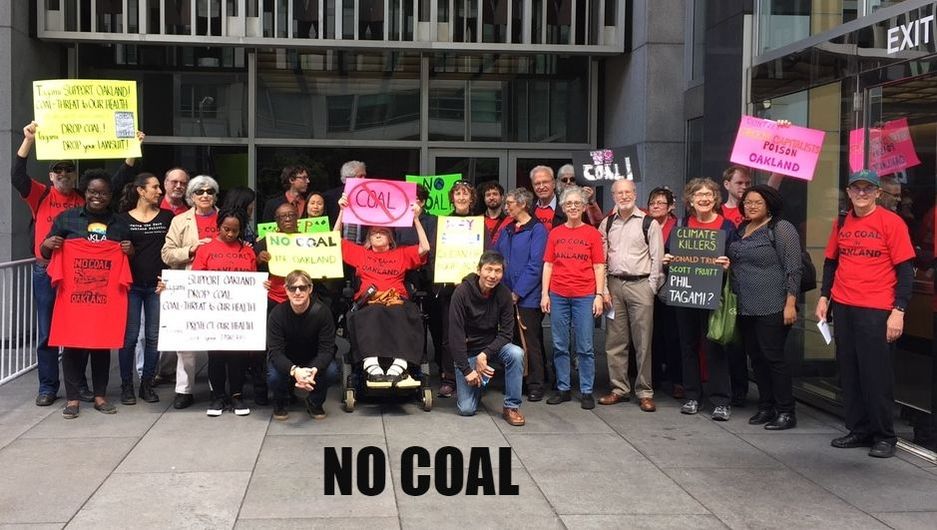

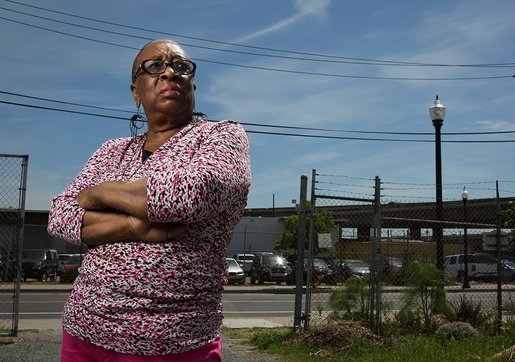
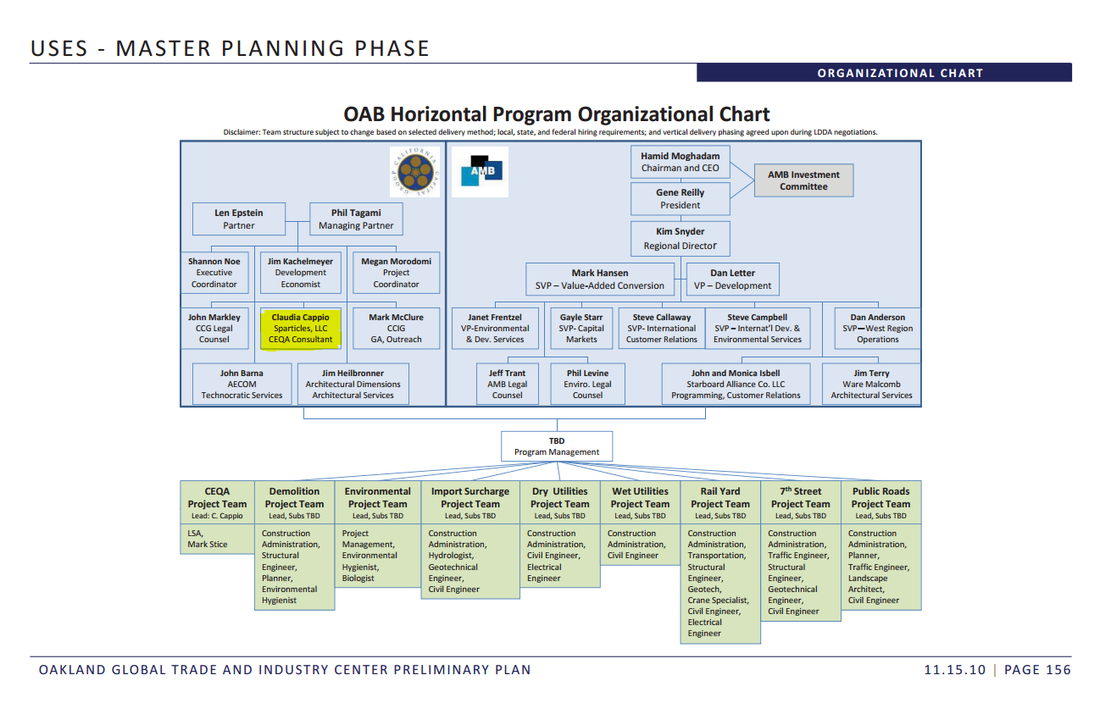
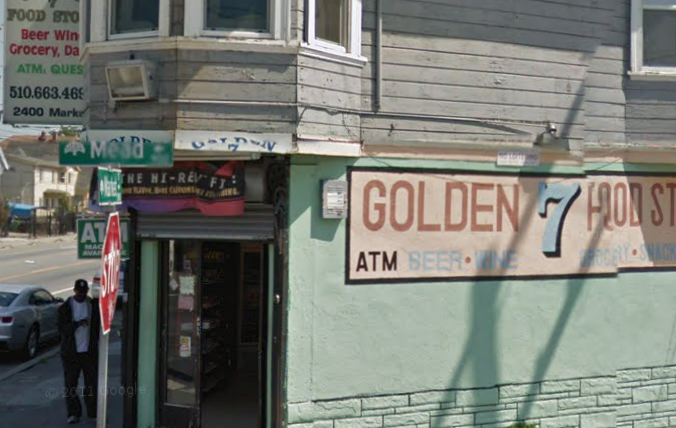
 RSS Feed
RSS Feed
